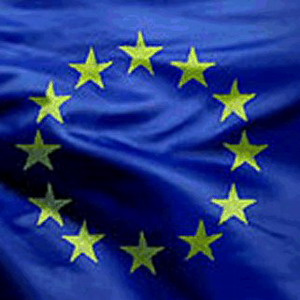EU towards a United Stance
Three EU members are forming a powerful block in Five plus One while China is drafting away. By Parviz Izadi, European affairs analyst, Ministry of Foreign Affairs Research Center

With its presidency term in United Nations Security Council starting in February, France –that has got into stormy ties with Iran since July 2009 presidential elections- will find elbow room to bid for tighter sanctions against Iran. As some observers predict, the United States and other major European countries are going to wait until February to put stronger sanctions against Iran on UNSC agenda.
Iran’s nuclear program has now turned into the shared concern of three major European states, i.e. France, Germany and Britain. As years have passed, these countries have developed a common understanding and moved towards a unified policy, hence their urge for tougher sanctions against Tehran. The case of Germans is particularly interesting, since at the early days of Iran’s nuclear story, their close economic partnership with Tehran held them back from taking a hostile stance. Berlin and Rome used to be Tehran’s alternating largest European trade partners. These days, China has occupied this role with its extensive trade and industrial cooperation with Iran. The current circumstances have nevertheless convinced them that moving closer to France and Britain over the issue is the best option.
China and Russia, on the other hand, have their own reservations. Beijing sent a low-level delegate to Five plus One meeting on Saturday while Russia stressed on a diplomatic approach towards Iran’s nuclear case. Scratching beneath the surface however reveals that the two are trying to extract more incentives from the United States and other Five plus One members before nodding in agreement with their proposal. This has made consensus among six world powers a complicated problem that needs further negotiation and bargain between Russia and China on one side, and US and EU on the other. China particularly has turned into the odd one out. Even European members –now becoming a powerful bloc in the group- don’t appear to be successful in persuading the Chinese to get on the same track with other members.
Iran’s nuclear program has now turned into the shared concern of three major European states, i.e. France, Germany and Britain. As years have passed, these countries have developed a common understanding and moved towards a unified policy, hence their urge for tougher sanctions against Tehran. The case of Germans is particularly interesting, since at the early days of Iran’s nuclear story, their close economic partnership with Tehran held them back from taking a hostile stance. Berlin and Rome used to be Tehran’s alternating largest European trade partners. These days, China has occupied this role with its extensive trade and industrial cooperation with Iran. The current circumstances have nevertheless convinced them that moving closer to France and Britain over the issue is the best option.
China and Russia, on the other hand, have their own reservations. Beijing sent a low-level delegate to Five plus One meeting on Saturday while Russia stressed on a diplomatic approach towards Iran’s nuclear case. Scratching beneath the surface however reveals that the two are trying to extract more incentives from the United States and other Five plus One members before nodding in agreement with their proposal. This has made consensus among six world powers a complicated problem that needs further negotiation and bargain between Russia and China on one side, and US and EU on the other. China particularly has turned into the odd one out. Even European members –now becoming a powerful bloc in the group- don’t appear to be successful in persuading the Chinese to get on the same track with other members.

